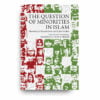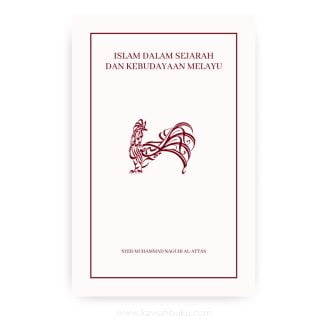The Question of Minorities in Islam: Theoretical Perspectives and Case Studies specifically meant to assess the current status of the Islamic discourse on minorities and open new vistas for further reflection and research that should be guided by maqāṣid al-sharīʿa seen as a necessary fundamental framework for revitalizing the creative practice of ijtihād and coming to terms with contemporary problems and challenges.
In the wake of globalization, humanity is living in a new world and facing new socio-cultural and politico-economic circumstances affecting people’s lives so profoundly. Increasing close social contacts and immediate cultural interactions among individuals and peoples previously far away from each other are the rule rather than the exception thanks to the unprecedented speed of means of transportation and the radical revolution in communications and information technology. In a world that has literally become a global village, new forces of influence and novel modes of human co-existence and interaction have emerged that face all nations and countries in the world with new challenges and problems.
At the forefront of these challenges and problems are issues of how increasingly interconnected individuals and communities of different belief-systems and religious faiths are would be able to live together peacefully. A very central question is how majorities and minorities of all kinds, especially religious ones, can cope with their differences and discover common grounds that would allow them to cooperate for the benefit and wellbeing of all and each and everyone in their respective societies. It is with this general context in view that the Muslim World League (MWL) has been involved in intellectual, cultural, and social activities in which issues related to Muslim minorities in the world have been at the center of focus.
Like other social and cultural groups, Muslim minorities in many countries of the world have been experiencing serious changes in their lives and status resulting as much from their internal developments as from the evolution of their relationships with the other components of their societies be they majorities or minorities. There are different factors that contribute to the shaping of those relationships both positively and negatively. One important factor that requires special attention pertains to the perception of Islam by both Muslims and non-Muslims and the understanding of what it stands for in relation to other religions and civilizations. This is more so in view of the ongoing debate that has been sparked by the clash of civilizations thesis over the last few decades.
The problems and challenges facing Muslim minorities in the world are of a complex nature involving social, cultural, economic, legal, and political aspects, and requires a comprehensive approach in handling them systematically by taking the special context and circumstances of those groups into consideration. It has been one major goal of the Muslim World League to assist Muslim minority groups by different means in overcoming the challenges and problems facing them. While undertaking this task, special attention has been given to striking a happy balance between the preservation and consolidation of their Islamic identity and positive integration
into the societies to which they belong.
However, the concern of the MWL about minorities has not been confined to Muslims only. Rather, and in line with the teachings of Islam and the historical experience of Islamic civilization, non-Muslim minorities living in Muslim countries have also been of increasing interest in its discourse and reach-out activities. It is indeed that the problems relating to Muslim and non-Muslim minorities can only be properly addressed and resolved when approached from the perspective of a unified systematic intellectual and methodological framework deeply grounded in Islamic jurisprudence. Such a framework, the editor believes, is provided by what has been described as the jurisprudence of minorities or Fiqh al-Aqalliyyat.











Reviews
There are no reviews yet